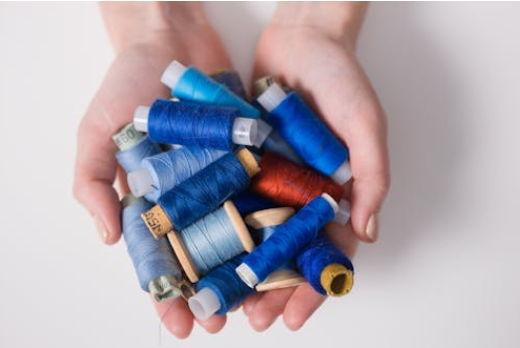Pro/Con: Affordability vs environmental impact

In comparison to some other fabrics that drive the price of clothing to unaffordable levels, polyester makes fashion easily accessible for a wider range of people.
Polyester is an easy, everyday fabric that makes daily activities such as laundry easier, as it has properties that make it dry very easily.
Not only is it more accessible, but it also looks very appealing. The colors pop brighter on the material, and it is easy to manipulate into a particular shape.
The quality of polyester is also very durable and it will last for a long time, making it great for people who want long-lasting and sustainable clothing.
Although polyester is popular for being affordable and accessible, that does not limit it to just an ordinary piece; many luxury brands use recycled polyester in their pieces, which also helps the toll it has on the environment.
Not only is polyester beneficial for the consumer because of its low costs, but for manufacturers, it’s also quick and easy to make.
Because of the benefits on both the manufacturing and consumer standpoints, people continue to seek ways to make the fabric even more useful. Technology has made it possible for polyester to feel and look more like the expensive natural fiber fabric.
Polyester is also versatile and can be incorporated into many different types of clothing, like athletic wear, swimwear, and even formal wear.
Overall, the wide variety of uses and easy accessibility make polyester stand out from any other fabric and make it a staple in fashion, not a trend that will pass over time.
Polyester has horrible side-affects for the environment and companies should stop using it to such a large extent.
The production of polyester is heavily energy-intensive. It requires fossil fuels, which adds to CO2 emissions and the release of greenhouse gasses on the environment. Polyester took up 52 percent of global fiber production in 2024, meaning it is by far the largest culprit for air pollution in the fabric category.
Not only does polyester pollute the air, it also plagues landfills and oceans. The fabric is made of material that is similar to plastic dishware, meaning it is very durable and long-lasting. While this might seem like a good thing, current fashion culture does not allow for anyone to appreciate this fact.
Trends shift every month. People buy these cheap clothes when one style is trending and then they throw the clothes away after it is no longer trending. All of that material could sit in the ocean or in landfills for upwards 200 years because of the non-biodegradable nature of the fabric.
Because polyester is such an affordable fabric, many companies have adopted it into their products. This phenomenon would make sense of cheaper companies like Shein or Walmart using polyester so frequently, but the same does not apply to more “expensive” companies.
Stores that are more associated with higher prices should not be producing with such cheap fabrics and still be charging such high prices.
The production of polyester and its treatment after use is horrible for the environment. Companies should stop using it to such an extent and fall back on more biodegradable fabrics.














